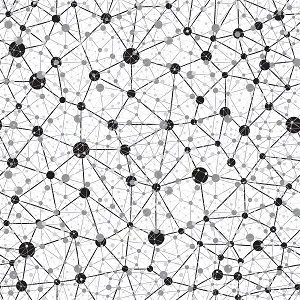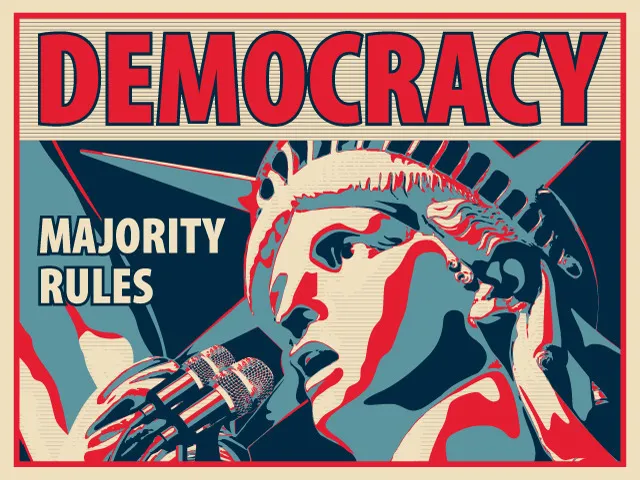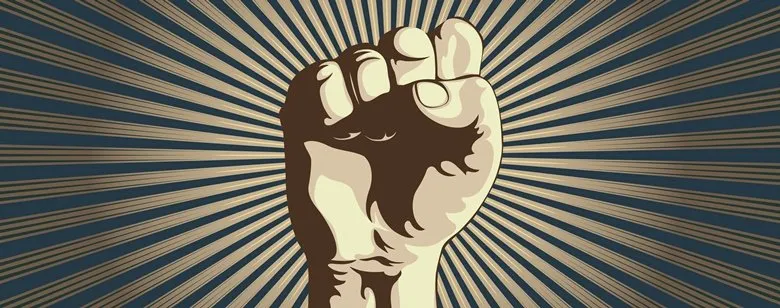Because of steemit I haven’t been able to properly fall asleep for some time, as ideas keep popping up. Instead of letting the valuable info slip through the crack as I would when I was only on Facebook and Reddit, I want to hold on to these ideas, so that I can write some interesting content later on.

This night (it is 2 am now in Amsterdam, well past my normal bed-time), I was thinking about democracy. Lately, my mind has been occupied by cryptocurrencies and blockchain, so the two ideas had sex in my mind and the lovechild that came out is a vision for the future.
Associative Democracy
During my master’s degree in philosophy, in which I specialized in Political and Social Philosophy, there is one political theory that really grabbed my attention. It is called Associative Democracy and was developed, or rather made explicit, by Paul Hirst in the early ‘90s. The basic idea is that instead of universal laws within a political union (like national or state laws), we would create some basic rights and responsibilities that hold for everyone (right to life, health, happiness, freedom, rules like not interfering with these rights, traffic rules, etc.) and let people organize themselves into associations if they want to get something done (plant a forest, build a hospital, create an ongoing social structure, etc.).
It sounds quite abstract, but once I grasped the idea, it made complete sense to me. Within Associative Democracy, money would go to associations proportionate to their size, while everyone is free to join and leave any association. Here’s the mind-blower: No association holds any power over any other association. So when you have a religious association that wants their members to not use marijuana, or groups that tell their members to behave in a certain way, even if they are the majority, they cannot impose these rules to others, and members are free to leave whenever they want. This is precisely the point where our current democratic systems are broken: majority rule impinges on everyone's freedoms.

(not a good thing)
Generally within Associative Democracy taxation is still something that is centrally organized, but division is based on membership. If I am part of three associations, my share of the government budget is divided three-ways. Theoretically, one could object, that this engenders freeloading: why wouldn’t we start an association where we give all the tax-money back to the members. Traditionally the answer would be that people would want to start paying for roads and such when it turns out they are breaking down, and would become members of the road-building association (for example). But blockchain throws this all in the blender. What comes out is revolutionary.
Blockchain Technology and Society
What happens when you add blockchain to this idea, is that once people are not part of the road-maintenance association, they would be charged a fee for using the roads (this can either be lump-sum or on a case-by-case basis). So the amenities that society produces are protected, much like private property.
Blockchain could also smooth out the voting and taxation within society. We could give each eligible person 100 points which they can divide among different departments or associations. We wouldn’t have to have a liquid democracy type situation, where people vote on systems that apply to everyone, as their rights are protected from exactly this situation, but we could intertwine voting and budgeting to a large extent. For the centrally organized goods and services, money is definitely needed, but this can come about either through taxation (as per one of the rules of any association) or through fees applied to users. For other services, something similar holds, but the money goes to the association that invests in the goods or services.

Bitcoin/Blockchain is often connected ideologically to libertarianism. We all know that not every individual is a libertarian, and that some people like structure and some sort of social safety net. But what blockchain makes possible is that we have both. A safety net for those who want and a way for people to pay out of pocket for these things. Together with a form of associationalism we can build our society from the ground up, like installing a new OS, where we can program freedom to choose our own way of life into the system, instead of being dependent on whatever is being kicked down the mountain of shit in parliaments around the world.